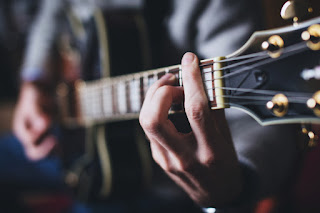Commitment I
There are costs
and sacrifices necessary in order to achieve significant musical goals. Commitment
is the psychological construct that enables musicians to persevere in their
practise and performance routines. That’s the main about commitment. It isn’t a
promise or a feeling; it comes down do doing.
Everything we do in the practice room or on stage moves us closer to, or further
from, our highest musical values and goals.
Commitment is
seen when musicians consistently demonstrate the specific behaviours and
activities that are likely to directly result in optimal performance.
Ultimately, commitment comes down to a choice. But it shouldn’t be a hard one
and you shouldn’t have to think about it too much anyway; you just do what you
do. This is important because frustration and failure are not uncommon when
starting out. The commitment I see in my best students is not particularly
self-reflective. It just is. Their commitment involves deliberate and careful
practise. The more focused and frequent the practise, the more the student’s
skills develop.
Truly great
musicians dedicate an enormous amount of time to deliberate practice over many
years. They all behave in a highly committed way. It’s not that finding time is
easier for them. They’re just willing to feel and sacrifice more than you or I.
Where do you draw the line? The more you are willing to accept, the higher the
commitment and the better the results.
Negative thoughts
are often a problem. But we can make a choice to act on them in a particular
way. The commitment, then, is to let them pass, refocus, and act on what moves
us closer to our musical goals. This is all to do with acceptance; the subject
of my previous blog.
By now you may be
wondering if commitment is best served by easy, moderate or hard musical goals.
The answer to that question begins my next blog called 'Commitment II.'



Comments
Post a Comment